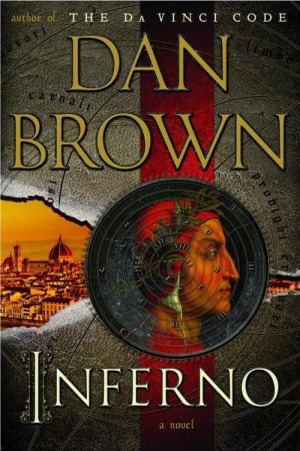If there’s one thing I really enjoy, it’s a page-turner of a book and, Dan Brown’s latest Robert Langdon mystery, Origin, is certainly that. Park your bottom, pour a coffee, wine or beverage of choice, put on the lamp, and begin…
 Once again, the quiet, Mickey-Mouse watch-wearing Professor of Symbology, Robert Langdon (and now I always picture the wonderful Tom Hanks), is in the wrong place at the right time – the right time to thrust him into the middle of a murder investigation with potentially catastrophic, future-of-humanity-is-at-stake, life-changing consequences.
Once again, the quiet, Mickey-Mouse watch-wearing Professor of Symbology, Robert Langdon (and now I always picture the wonderful Tom Hanks), is in the wrong place at the right time – the right time to thrust him into the middle of a murder investigation with potentially catastrophic, future-of-humanity-is-at-stake, life-changing consequences.
Attending the Guggenheim Museum in Bilbao, Spain, to hear a former student of his, Edmond Kirsch, deliver a speech he claims “will change the face of science forever”, by delivering the answers to two fundamental questions that have perplexed scientists, religious minds and philosophers for centuries, what Langdon doesn’t expect is the murder and mayhem that unfolds. Though, really, on past experiences (I’m thinking Angels and Demons, The Da Vinci Code, The Lost Symbol and Inferno) maybe he should.
After all, Edmond, a computer and high-tech genius who has made dazzling and accurate predictions for over twenty years that have gained him a global cult following, is no stranger to controversy. Not afraid to poke a religious hornet’s nest, the book opens with Edmond baiting three religious leaders by allowing them a preview of what he intends to release. For such a smart man, this seems like a dumb move as there are those among the faithful who will do anything to ensure his discovery is never revealed.
When the presentation to the world goes horribly wrong, it becomes a race against time as Professor Langdon (and his trusty watch), a beautiful female side-kick (is there any other kind?) and a very sophisticated piece of technology, work to ensure Edmond’s discovery is made public. As much as the good Professor and his helpers seek to do what they believe is right, there are those working against them who believe the same thing and will stop at nothing to ensure they fail, even if it means more bloodshed.
In the meantime, all eyes are turned to Spain – as conspiracy theories and theorists, a growing media pack, denizens of the internet and a digital and real audience simultaneously commentate upon what is happening.

Gaudi’s, Sagrada Familia
There’s no doubt, Brown has perfected the art of making sure his reader is hooked. Fast-paced, filled with didactic speeches (that are nevertheless interesting and entertaining), that reveal religion and science to be both juxtaposed and yet, not as polemically situated as one might think, Langdon’s mission is, indeed, an ideological game-changer… or is it? Tapping into the zeitgeist, Brown ensures that the questions tormenting many in the world at present such as the role of religion and faith in a technologically-savvy, rational world that constantly seeks proof and wonders can these two oppositional ways of thinking ever find common ground, are asked. Required to suspend your disbelief (which is fine), there are some strange plot points that frustrate rather than illuminate, and so impact upon the overall believability, even within this genre, of the sometimes OTT actions and consequences. Mind you, the glorious descriptions of Antoni Gaudi’s works does go someway to compensating.
As is often the case, the journey to uncover answers is often more exciting and revealing than the destination. Still, there is much to enjoy about a book that excites the mind and the mind’s eye, turns an academic into, if not a super-hero, then certainly a hero and, it seems, religious authorities into villains while concurrently overturning a great many expectations. There’s also a satisfying twist that many might see coming, but that doesn’t reduce the impact.
Overall, another fun, well-paced, Robert Langdon adventure, replete with groans, dad-jokes, and some fabulous facts. I hope he takes us on a few more.


 ory of how he got there or why. When strangers try to take his life and a beautiful and clever female doctor offers rescue and potentially some answers to the blanks his memory has become, Langdon jumps (literally) at the chance.
ory of how he got there or why. When strangers try to take his life and a beautiful and clever female doctor offers rescue and potentially some answers to the blanks his memory has become, Langdon jumps (literally) at the chance.


